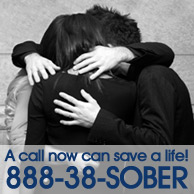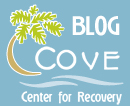Suboxone Treatment in Florida Suboxone
Generic
Name: buprenorphine and naloxone (byoo PREH nor feen and NAH
lox own) Suboxone is a drug treatment for detoxification from drug addiction
and a drug used as a maintenance program for opioid dependence
(ex: OxyContin and heroin), addiction, addiction treatment and
addiction recovery. Unlike methadone, Suboxone is currently recognized for use in
detox facilities for an opiate detox. Methadone is no longer
the preferred alternative for opiate treatment, as it is a schedule
II narcotic medication and has a significant potential to be
habit forming. Suboxone is the first narcotic drug available
for the treatment of opiate dependence and opiate addiction.
Suboxone is prescribed by a physician. It is available under
the Drug Abuse Treatment Act of 2000. *see
below There exists a significant difference between a Suboxone Maintenance
program and an Addiction Treatment Program, inclusive of those
individuals incorporating Suboxone maintenance with their addiction
treatment and recovery program. The Cove Center For Recovery
encourages each addict to begin correcting a problem by examining
why that problem exists in the first place. Drug addiction is
always the result of self-medicating, in an attempt to overcome
or cope with ongoing life challenges. Whether an individual
struggling with opioid dependence is you or someone you care
about, understanding this disease—what causes it, what
contributes to it, and why it persists—is a key to being
part of the solution. Simply using Suboxone as maintenance does
not address underlying issues. Therefore, Suboxone maintenance, without entering an addiction
treatment center, is not recommended by The Cove Center For
Recovery. While The Cove Center For Recovery advocates the use
of Suboxone during the detox phase of addiction treatment, a
continued maintenance treatment (without therapeutic intervention),
is a topic challenged openly in the profession of medical doctors,
psychotherapists, and addiction treatment centers. The Cove
chooses to avoid the debate. We take the position that every
person has the right to a therapeutic treatment program. Simply put, The Cove provides “addiction treatment”
and therapy, in our addiction treatment center, for those “recovering”
individuals, who choose Suboxone maintenance. The Cove recognizes
the many options available for the recovering individual and
welcomes individuals who are willing to choose recovery and
therapeutic modalities, leaving their drug of choice in the
past. What are Opiods?
Opioids are commonly prescribed because of their effective analgesic,
or pain-relieving, properties. Medications that fall within
this class-referred to as prescription narcotics-include morphine
(e.g., Kadian, Avinza), codeine, oxycodone (e.g., OxyContin,
Percodan, Percocet), and related drugs. Morphine, for example,
is often used before and after surgical procedures to alleviate
severe pain. Codeine, on the other hand, is often prescribed
for mild pain. In addition to their pain-relieving properties,
some of these drugs-codeine and diphenoxylate (Lomotil) for
example-can be used to relieve coughs and diarrhea.
How Does Suboxone Work with Percocet, OxyContin, Heroin and
Other Opiates?
Suboxone contains a combination of buprenorphine and naloxone.
Buprenorphine is an opioid medication. Buprenorphine is similar
to other opioids such as morphine, codeine, and heroin however,
it produces less euphoric (“high”) effects and therefore
may be easier to stop taking. Naloxone blocks the effects of opioids such as morphine, codeine,
Percocet, OxyContin, and heroin. If Suboxone is injected, naloxone
will block the effects of buprenorphine and lead to withdraw
symptoms in a person with an opioid addiction. When administered
under the tongue as directed, naloxone will not affect the actions
of buprenorphine. Suboxone is used to treat opiate addiction. How Do Opiods Affect
the Brain and Body?
Opioids act on the brain and body by attaching to specific proteins
called opioid receptors, which are found in the brain, spinal
cord, and gastrointestinal tract. When these drugs attach to
certain opioid receptors, they can block the perception of pain.
Opioids can produce drowsiness, nausea, constipation, and, depending
upon the amount of drug taken, depress respiration. Opioid drugs
also can induce euphoria by affecting the brain regions that
mediate what we perceive as pleasure. This feeling is often
intensified for those who abuse opioids when administered by
routes other than those recommended. For example, Percocets
are ingested orally or snorted. OxyContin is snorted or injected
to enhance its euphoric effects, while at the same time increasing
the risk for serious medical consequences, such as opioid overdose.
Heroin is snorted, smoked, or injected (used intravenously). Who Chooses Suboxone Detox
and Drug Treatment?
Drug addiction is a world-wide problem. Many people
say it is a chronic disease, a disease of epidemic proportion.
Drugs and alcohol can lead to drug addiction and alcohol addiction
(alcoholism), which causes chaos in the lives of addicted people
and their families, in addition to continued consequences, such
as broken relationships, medical deterioration, incarceration,
and death. Recently, opioid (drug) dependence, most notably OxyContin and
heroin drugs known as opiates, has increased and reached our
nation’s everyday families and communities. Opiate addiction
spans most age groups including adolescents, young adults, adults,
and senior adults. Once an individual struggling with drug addiction,
has made the decision to seek addiction treatment, the journey
to recovery begins. The decision to seek addiction treatment
may be self-motivated or encouraged or even demanded by loved
ones. Legal consequences for drug addiction may also be a motivating
factor. Regardless of the motivation, it is important to focus
on the decision to enter an addiction treatment program. The individual who might choose Suboxone in the detox phase
and addiction treatment or recovery phase, is one who has become
addicted to drugs in the opioid category (ex: OxyContin and
heroin) and has decided to seek addiction treatment. Suboxone
can be used in detox, followed by a maintenance program of Suboxone
intake. This form of addiction treatment is most successful
when Suboxone is combined with the therapeutic benefits of a
structured therapeutic addiction treatment facility and addiction
treatment program.
*In October 2002, the Food and Drug Administration
(FDA) approved buprenorphine monotherapy product, Subutex®,
and a buprenorphine/naloxone combination product, Suboxone®,
for use in opioid addiction treatment. The combination product
is designed to decrease the potential for abuse by injection.
Subutex® and Suboxone® are currently the only Schedule
III, IV, or V medications to have received FDA approval for
this indication. Note that aside from Subutex® and Suboxone®,
other forms of buprenorphine (e.g., Buprenex®) are not approved
for treatment of opioid addiction. Information contained above
is courtesy of http://buprenorphine.samhsa.gov/about.html  |
Psychotherapy:
Daily involvement in your addiction treatment program
during your SUBOXONE treatment is required for the optimal benefit
of Suboxone treatment. Therapy aka psychotherapy and counseling,
helps patients develop coping skills that can help them to avoid
relapse and has been shown to significantly improve the likelihood
of long-term treatment success. Other therapeutic modalities of treatment are helpful in resolving
ongoing, interpersonal struggles. Trauma Therapy, Grief Therapy,
Anger Management, Stress Management, Art Therapy, Music Therapy,
and Meditation, are important therapeutic techniques each recovering
individual may use to gain insight and develop daily skills
in the quest to live a healthy, sober life. Cycle
of Addiction – Education: The Cove Center For Recovery
provides education on the cycle of addiction, in an effort to
help each individual identify behaviors in the cycle and side-step
relapse before it occurs. When an individual recognizes behaviors
such as non-compliance with medication, excessive stress, denial
or reduced effort in recovery groups such as NA, then the individual
can STOP the relapse before it begins. Physical
Exercise: Physical exercise is your friend ! The Cove
Center For Recovery provides a “workout” program
for each individual. The treadmill, stair master, or weights,
are used in the gym, to encourage and promote a “healthier”,
“new you” ! Sober
Fun: The Cove Center For Recovery holds firm to their
belief that every individual benefits from SOBER FUN. Time previously
spent using drugs, must be replaced with activities. “Idle
minds and idle hands create a dangerous situation for the recovering
addict.” The Cove provides activities to enhance and encourage
sobriety. These activities include: bowling, basketball, movies,
sight-seeing, team-building activities, and seasonal out-door
activities such as snorkeling, beach volleyball, fishing, and
other recreational activities. Continued
Support
In addition to The Cove Center For Recovery and continued support
through NA and AA, we suggest that each recovering individual
seek psychotherapy, medical care, and continued support as needed. Reach out to us. Recovery from addiction is just a click or a phone call away.
If the information you are looking for is not found here and you need immediate
attention you may contact us:
Florida Addiction Treatment for adults and young adults: 1-888-387-6237
For more Information you may visit our Comprehensive website at: CoveCenterforRecovery.com
http://cuttingandselfharm.com Florida Addiction Treatment for Teens: 1-888-757-6237
http://www.inspirationsyouth.com
http://www.inspirationsteenrehab.com
http://interventionforteens.com
http://teenmarijuanaaddiction.com
http://adolescentresidentialtreatment.com
http://teeneatingdisordertreatment.com
http://www.adolescenttreatmentprogram.net
http://adolescenttreatment.net
http://teendrugrehabcenters.com
http://teenprescriptiondrugrehab.com You may also send us e-mail.
Please keep in mind that e-mails are answered within 24 hours Monday
through Friday. | 


